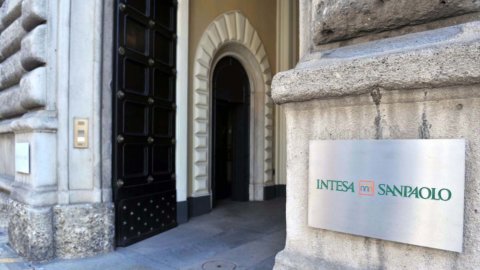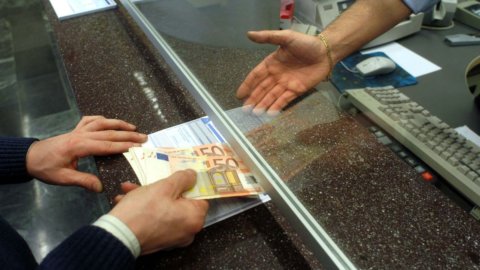At the autumn recovery theworld economy appears frail. Is that Italian company certainly not bursting with health, but he sees some glimmers at the end of the tunnel.
Il GDP of the Earth continues to expand: +3,3% the latest IMF estimate for 2019. On the other hand, it rarely decreases, so much so that the limited -0,1% of 2009 has been called the Great Recession.
However, +3,3% is the lowest estimate of the last ten years and is destined to be revised downwards. Indeed, the contraction of the global manufacturing continued in August, slightly less intense (PMI 49,5 from 49,3 in July, which was the minimum for 6 ¾ years; below 50=reduction in activity) and widespread (19 countries backtracking from 20 per month previous). The orders they promise a further decline in productive activity, because their decline has accentuated, above all for those from abroad (47,5 from 48,3, 49,0 from 49,2 for the total). In other words, the business international continues to march along and push back the production of industry.
The same chorality accentuates the decline, because the decline in one country transmits, via lower imports, recessive impulses to the others, in a self-perpetuating mechanism.
The cause before the retreat remains the protectionism, acted out and announced (Brexit is a sadomasochistic and extreme subspecies of it). Above all because it generates uncertainty and slows down the investments, which are composed of goods whose manufacture requires many components from many different countries.
The repercussions of this industrial backwardness caused by the involution of globalization are asymmetrical: le most affected economies they are the most manufacturing ones, open to trade with foreign countries and specialized in the production of capital goods.
So that in the head of the predestined victims there is the Germany, which with the dieselgate moreover, the worst crisis in its leading sector has inflicted itself: the automobile.
- USA, although more closed, are feeling the effects of the global manufacturing difficulties, so much so that in August they joined the choir intoning the sector's recessionary litany: its US PMI at 49,1 signaled the first drop in activity since September 2016; especially worrying is the fall in orders (indicator to 47,2, from 50,8 in July), pulled down by export orders (43,3, from 48,1).
Il Chinese manufacturing in August it moved in the opposite direction, returning to expansion and achieving the best result since last March. The stability of total orders in August it follows from the increase in internal ones and the decrease in foreign ones, confirming that trade between countries is in retreat.
The Celestial Empire continues in long march from an economy driven by exports and investments to an economy driven by consumption, with the consequent downsizing of the manufacturing sector and expansion of the tertiary sector. Therefore, it is difficult to distinguish cyclical deterioration from structural change.
With exports in an almost generalized decline and investments that are at best stationary (but frequently declining), they are the consumption to keep up the increase in demand in the various economies. This is particularly true for the American ones, which also in the third quarter are en route for an annualized increase of 2,9%, after the 4,7% achieved in the second, after having suffered from the "closure" of public offices in the previous two.
Il job market The USA continues to supply new fuel to the purchasing power of families, thanks to the constant increase in jobs and the gradual acceleration of wages, especially among the poorest and least skilled workers, which is not only fair but also efficient. All this was also confirmed by the August data.
If consumption today is the engine of growth, it should be remembered that two-thirds are made up of purchases of services and this explains why the tertiary sector has remained relatively immune from the difficulties of manufacturing; as the robust one well illustrates increase in US services PMI (56,4 from 53,6). The tertiary sector, a less cyclical sector exposed to foreign trade, keeps global economic growth positive (composite PMI firmly above 50). At least for now.

Due to these international dynamics theItaly it finds itself crippled by its healthy leg, namely exports, which eleven years after the beginning of the crisis is the only component of its demand to have returned above the levels of those times.
THEmanufacturing industry, although prostrate (it has lost a fifth of production and businesses), remains the backbone of the country's development. But like and more than anywhere else it is in recession: PMI below 50 since October 2018.

However, for the first time in many quarters the balance of economic prospects Italy leans on the growth side. The new wave of interest rate reductions also involved the yield curve of the Republic's public securities; the decline of which was accentuated thanks to the budget adjustment manoeuvre, carried out in July, and to the exit from the government team of the anti-European party.
Interest rates at historic lows lower the public spending for interest, already cut by just under a fifth by the purchases of government bonds by central banks.
Lowering rates not only makes Italian sovereign debt sustainable, thus eliminating a source of uncertainty, but also improves bank balance sheets (stuffed with government bonds), reduces the cost of money (since yields on sovereign bonds are the pivot of the entire rate structure), encourages real estate purchases and gets the construction sector back on track .
In short, there is the possibility of starting a virtuous circle of more confidence that supports domestic demand. Just when retail sales started to wake up thanks to basic income spending.








I am thrilled and grateful to all of you to have brought together the two legendary Fabrizio Galimberti and Luca Paolazzi of the legendary the hands of the economy of the Sun era. A few months ago, writing separately to the two authors, I wished such a "reunion" and thanks to the historic directors of the Golden Age Sun…. I find them. Thank you very much.
Dear Doctor Franmbosi,
Also on behalf of Fabrizio Galimberti I thank you for this enthusiastic and exciting message
Thank you for continuing to follow us
Luke Paolazzi